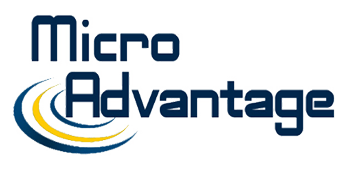Silicon Motion Announces SM8366 PCIe 5.0 x4 NVMe Controller and MonTitan SSD Solutions Platform for Enterprise Storage
In the lead up to the Flash Memory Summit next week, many vendors have started announcing their new products. Today, Silicon Motion is unveiling their first enterprise-focused PCIe 5.0 NVMe SSD controllers set. These controllers find themselves embedded in a flexible turnkey solutions platform encompassing different EDSFF standards. A follow-up to the SM8266 introduced in November 2020, the SM8366 and SM8308 belong to Silicon Motion’s 3rd Generation enterprise NVMe controller family.
| Silicon Motion’s 3rd Generation Enterprise SSD Controllers | ||||||
| SM8366 | SM8308 | |||||
| Host Interface | PCIe 5.0 x4 / x2 (dual-port x2+x2 or x1+x1 capable) | |||||
| NAND Interface | 16ch, 2400 MT/s | 8ch, 2400 MT/s | ||||
| DRAM | 2x 40-bit DDR4-3200 / DDR5-4800 (32-bit data + 8-bit ECC per channel) |
|||||
| Max. SSD Capacity | 128 TB | |||||
| Sequential Read | 14 GB/s | |||||
| Sequential Write | 14 GB/s | |||||
| Random Read | 3 M IOPS | |||||
| Random Write | 2.8 M IOPS | |||||
| Namespaces | Up to 128, with a total of 1024 queue pairs | |||||
Hyperscalers / cloud vendors require turnkey reference designs to quickly evaluate the capabilities of new controllers. In enterprise applications, the controller hardware is only half the story. The associated firmware / SDK, and user-programmability to enable customer differentiation are also key aspects. Keeping this in mind, Silicon Motion is also putting focus on the SM8366 reference design by giving it a separate moniker – MonTitan.
The MonTitan platform refers to the turnkey design / firmware development platform based on the OCP Data Center NVMe SSD and NVMe 2.0 specifications. Hyperscalers can readily deploy the MonTitan platform into their infrastructure for evaluation, while datacenter SSD vendors can use it to make and market their own datacenter and enterprise SSDs. The platform is currently available in U.2, E1.S, and E3.S form-factors.
Silicon Motion claims that the platform’s ASIC and firmware combination architecture allows enabling of enterprise-level security without compromising on performance and QoS. Towards this, they are touting two key features – PerformaShape and NANDCommand.
NVMe SSD controllers can present the SSD as multiple distinct storage volumes each with its own I/O queue to the host system (namespaces). The PerformaShape algorithm can optimize the SSD performance differently for each namespace using per-namespace user-defined QoS settings. Silicon Motion claims true hardware isolation in this case to deliver maximum bandwidth while ensuring that latency, QoS, and power targets are met / obeyed. The NANDCommand feature refers to Silicon Motion’s use of real-time machine learning along with the LDPC engine to help with endurance (paritcularly important for QLC).
The claimed performance numbers for the SM8366 controller can vary for specific designs depending on the NAND technology, number of dice, and form-factor power limitations. The company indicated that specific numbers for different form-factor reference designs will be announced later. Sampling is slated to begin in Q4 2022.
Silicon Motion’s press release shows the usual suspects providing supporting quotes – Micron, KIOXIA, and YMTC from amongst the NAND suppliers. Alibaba Cloud has also expressed interest in evaluating the platform, which bodes well for Silicon Motion’s enterprise SSD controller efforts.

